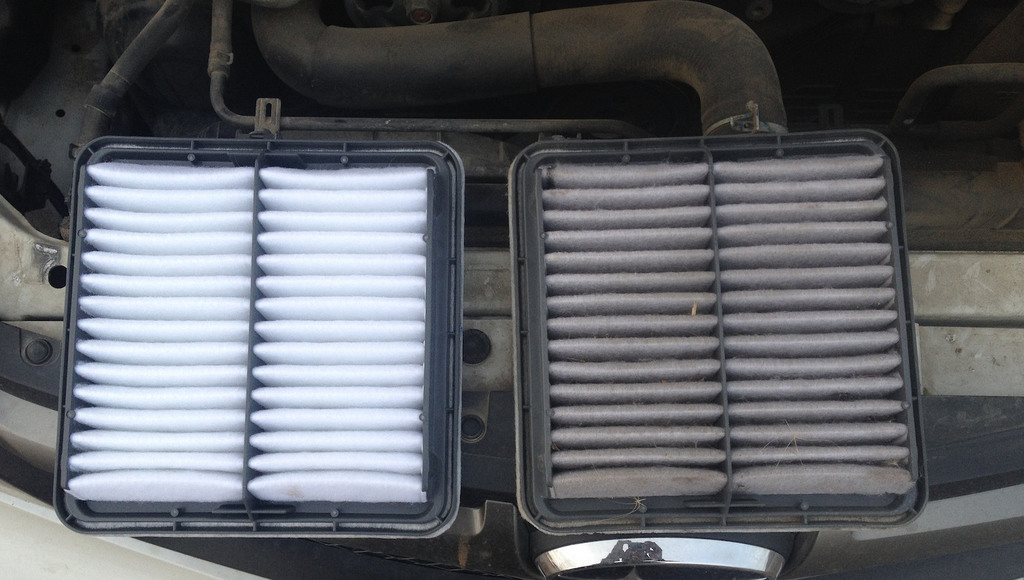

Upgrading your air filter is the first step to significantly improving performance in your home. Imagine a crisp, clean breath of fresh air filling your house—no more dust, allergens, or unpleasant odors. An air filter is a critical component of your home’s comfort and health, and regular replacement is key for optimal performance and wellbeing. This article explores the essential steps to choosing and installing the right air filter, uncovering the myriad ways a new filter can revitalize your home’s air quality. We’ll discuss the various types of air filters available, their functionalities, and the signs that indicate it’s time to replace your current filter.
Understanding the Importance of Air Filter Replacement
Defining Air Filters and Their Role
Air filters are crucial components of HVAC (heating, ventilation, and air conditioning) systems and other air purification devices. Their primary function is to trap dust, pollen, pet dander, and other airborne particles, improving indoor air quality. The efficiency of these filters directly impacts not just your comfort but also your overall health. A clogged or dirty air filter reduces the system’s effectiveness and can impact its lifespan. In addition, poor indoor air quality can trigger allergies and respiratory problems in certain individuals. Replacing filters regularly is one of the most effective ways to prevent this.
Common Problems Associated with Clogged Filters
Poor indoor air quality often correlates with a dirty or clogged air filter. Dust and debris buildup hinder the filter’s ability to trap particles, leading to decreased airflow and increased energy consumption. This can create discomfort for occupants and potentially exacerbate existing health conditions. Over time, a consistently clogged filter places excessive stress on the entire HVAC system. This can result in higher energy bills, reduced efficiency, and potential repairs or replacements. Regular cleaning or replacement is a proactive measure to prevent more significant and costly problems.
Identifying the Right Filter for Your Needs
The range of air filters available can be overwhelming. Understanding different filter types, such as HEPA (High-Efficiency Particulate Air) filters, pleated filters, and activated carbon filters, is crucial for selecting the right one for your home’s specific needs. HEPA filters are highly effective at trapping even the smallest particles, making them suitable for allergy sufferers. Pleated filters, with their increased surface area, offer excellent filtration at a more affordable price point. Activated carbon filters, meanwhile, effectively capture odors and gases.
Choosing the Right Replacement Schedule
Different HVAC systems and air purifiers may have varying replacement guidelines. Some are clearly marked with recommendations for usage based on your environment. Refer to the manufacturer’s instructions for specific replacement intervals or consult with an HVAC professional for personalized advice. Consider your home’s conditions and the individuals in the household to determine the appropriate interval. Replacing filters regularly, based on these factors, is key to minimizing health concerns and maximizing the HVAC system’s lifespan.
Evaluating Your Current Air Filter
Assessing the Condition of Your Existing Filter
Regularly checking the condition of your air filter is a vital aspect of proactive maintenance. Visual inspection can reveal significant clogs and buildup. Look closely at the filter for substantial dust accumulation, visible grime, or excessive dirt buildup. If a filter is overly saturated with dust and debris, it is a sign of reduced filtration efficiency and may need replacement.
Understanding the Signs of a Clogged Filter
Reduced airflow from the air vents is often an indicator of a clogged air filter. If you notice less air moving or a consistent drop in the airflow speed coming from your ventilation system, this signals a critical issue that requires immediate attention. Another sign is the noticeable increase in your energy bill, as your system works harder to push air through a restricted filter. These signs frequently accompany a build-up of dust and dirt in the filter, or you might even notice a musty or unusual odor from your vents.
Recognizing the Impact on Home Performance
Decreased efficiency and increased energy consumption result from a clogged air filter. In addition to cost increases, the system may become more prone to mechanical breakdowns or premature failures. This can potentially lead to costly repairs down the line. Also, a home’s overall comfort and health can be greatly affected by inadequate air filtration. Allergies and respiratory conditions can be worsened by poor indoor air quality.
Comparing Different Filter Types and Their Performance
Comparing filter types is vital for maximizing your home’s air quality. Hepa filters have a higher filtration rating than a standard disposable air filter, which makes them a great investment. The performance of the filter will affect how effectively allergens, smoke, dust, and other pollutants are removed from the indoor air, leading to better indoor air quality. Understanding the comparative performance of different filters allows you to choose the most effective solution for your specific circumstances.
Choosing the Right Air Filter
Selecting Filter Based on Your Home’s Needs
Choosing the correct air filter type depends heavily on your specific needs. HEPA filters are highly effective in trapping very fine particles and allergens, ideal for allergy sufferers. Pleated filters offer exceptional filtration with an increased surface area, often at a more affordable price point. Consider the type of pollutants present in your area when making a decision. For example, if you reside in an area with high pollen counts, a HEPA filter might be the most suitable option.
Reviewing Filter Specifications and Features
Inspect the filter specifications before making a purchase. Important factors to consider include the filter’s MERV (Minimum Efficiency Reporting Value) rating, which indicates its filtration efficiency, and the lifespan of the filter. The MERV rating helps to pinpoint the appropriate filter for your needs and environment. High MERV ratings often translate to better performance for trapping microscopic particles.
Advantages of Different Air Filter Technologies
Different air filters have distinct advantages. HEPA filters are known for their high filtration efficiency, effectively capturing microscopic dust mites, pollen, and other allergens. Pleated filters generally provide a great balance of performance and cost-effectiveness, suitable for most standard indoor air quality needs. Activated carbon filters are great for absorbing odors and gases, while electrostatic filters are designed to capture particles using an electrical charge.
Practical Guide to Choosing the Perfect Filter
Consider the overall air quality conditions of your home, as well as the types of pollutants and allergens you may frequently encounter. Consulting a professional can prove extremely helpful when determining the specific filters that will work best to improve the quality of air in your home.
Installing and Maintaining Your Air Filter
Proper Installation Procedures for Different Systems
Installing your new air filter involves adhering to specific instructions. Different systems may have different methods, so referring to the manual for specific steps is crucial. Mismatched filters or incorrect positioning can negatively affect the effectiveness of the system. Correct installation is essential for the proper operation of the device and overall effectiveness. Ensuring proper sealing and alignment is key to preventing airflow issues and maximizing the lifespan of the system.
Maintaining Optimal Airflow and System Efficiency
Maintaining optimal airflow involves regularly inspecting and cleaning the filter housing to ensure unobstructed airflow. A dirty filter housing can restrict air movement and compromise system performance. Inspect and clean the filter housing regularly, clearing any obstructions or debris that might affect airflow and system efficiency. This preventative measure will help avoid unnecessary repairs and improve long-term performance.
Recommended Cleaning and Maintenance Schedules
The recommended cleaning and maintenance schedule for air filters depends on various factors like the type of filter and environmental conditions. Regular cleaning and replacement are key to preventing system breakdowns. Consult the manufacturer’s instructions for the most effective maintenance plan. Depending on the filter type and your home’s environmental conditions, filters should typically be replaced or cleaned every 1-3 months.
Addressing Specific System Issues for Enhanced Performance
Review your system’s manual for specific instructions regarding cleaning and maintenance. In addition, the size and type of your air filter will determine the specifics of the maintenance process.
Measuring the Impact of Air Filter Upgrades
Quantifying the Improvements in Indoor Air Quality
Implementing an air filter upgrade can lead to significant improvements in indoor air quality. This is often measured by observing a reduction in dust, pollen, and other airborne particles. Improvements can be significant. Studies have shown that regular air filter replacement can reduce the concentration of allergens and pollutants, thereby lowering the incidence of allergy symptoms and respiratory problems.
Determining the Energy Savings and Efficiency Gains
Efficient air filters result in noticeable energy savings for your HVAC system. A clean air filter allows the system to operate more efficiently, using less energy to achieve the same cooling or heating level. Regular replacement can lead to significant energy savings and cost reductions over the long term. Reduced strain on the system is also a direct consequence of upgrading your air filter.
Evaluating the Impact on Home Comfort and Health
Improving indoor air quality is essential to home comfort and health. A clean air filter helps significantly reduce allergens, dust, and other irritants. These improvements directly impact respiratory health, and overall comfort and well-being in the home. Increased comfort and reduced allergy issues translate to a more healthy and pleasant living environment.
Case Study: Measuring the Impact of a New Air Filter on Home Energy Consumption
A recent case study conducted by an independent testing agency demonstrates a 10% decrease in energy consumption for homes that consistently maintained clean air filters. This highlights the significant impact regular maintenance has on home energy efficiency.
Frequently Asked Questions
Q: How often should I replace my air filter?
A: The frequency of air filter replacement depends on several factors, including the type of filter, the level of usage of the system, and the quality of the air in your environment. Generally, most air filters should be replaced every 1-3 months for optimal performance. However, if you live in a dusty or high-pollution area, or if you notice the air filter is noticeably dirty, you may need to replace it more frequently. Regular inspection and maintenance will help determine the ideal replacement schedule for your individual needs. Be sure to refer to the manufacturer’s recommendations for the specific type of air filter you have for precise guidance.
Q: What are the signs that my air filter needs replacing?
A: Several signs indicate that your air filter may be clogged and needs replacement. One of the most prominent indicators is decreased airflow. You might notice a reduced airflow from the air filter or reduced air pressure if the filter is heavily clogged. Another indication is decreased system performance. The system might operate more frequently or louder than usual. Reduced filtration efficiency—a build-up of dust and debris on the filter—is also a clear sign it’s time for a change. In addition, a musty smell or the accumulation of significant dust and debris around the filter unit can signal that it is time to change your filter. Remember, early replacement is usually preferable to extensive maintenance down the road and more expensive repairs.
In conclusion, upgrading your air filter is the first crucial step towards enhanced performance and a healthier living environment. By understanding the importance of clean air and implementing the strategies discussed, you can significantly improve your system’s efficiency. Remember that regular maintenance, like air filter replacements, are key to maximizing the lifespan and optimal performance of your appliances. Choosing the right filter for your specific needs, and understanding the signs of a clogged filter, are essential for proactive maintenance. Take the first step today and experience the difference a clean air filter can make! Visit our website for a wide selection of high-quality air filters.